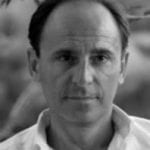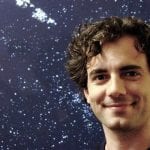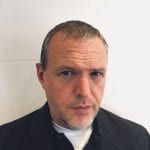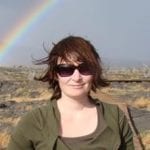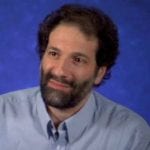The Cosmology Group in the UC Santa Cruz Astronomy and Astrophysics department and the Santa Cruz Institute for Particle Physics (SCIPP) consists of active researchers who study some of the most pressing problems in astrophysics today. Our areas of interest include large scale structure, the nature of dark matter and dark energy, the connection between galaxies and their dark matter halos, galaxy formation, studies of clusters of galaxies, and the reionization of the intergalactic medium.
UCSC faculty are deeply involved in many of the large cosmic surveys including DES, HSC, DESI, LSST, and planning for the WFIRST mission. UCSC also has access to Lick Observatory and the twin Keck telescopes.
Prof Jeltema studies clusters of galaxies, including cosmological constraints with clusters and studies of the intracluster medium. She co-chairs the Cluster Science Working Group for the Dark Energy Survey (DES) and is a member of the LSST Dark Energy Science Collaboration. She also works on understanding the particle nature of dark matter with observations of galaxies and clusters ranging from radio to X-ray to gamma-ray wavelengths.
Prof Leauthaud focuses on probing distributions of dark matter via gravitational lensing. She is currently working with data from the Hyper Suprime Cam Survey. She serves as the co-chair for the DESI C3 (Clustering, Clusters, and Cross-Correlations) working group and is a member of the LSST Dark Energy Science Collaboration. She is excited to soon be cross-correlating new DESI data with everything else to maximize the return for dark energy science.
Prof Madau's research addresses key events in the early evolution of the universe, including the dawn of galaxies, the formation of the first stars and black holes, and the reionization and chemical enrichment of the intergalactic medium. In recent years, his team has carried out some of the most successful computer simulations of the assembly of Milky Way-like galaxies.
Joel Primack works on the large-scale structure of the universe including the properties of dark matter halos, and on the formation and evolution of galaxies. He is a leader of the Assembling Galaxies of Resolved Anatomy (AGORA) international collaboration to compare simulations of galaxies by different codes, and of the Cosmic Assembly Near-infrard Deep Extragalactic Evolutionary Survey (CANDELS) collaboration comparing data from HST and other telescopes with high-resolution simulations.
Prof Profumo seeks to unveil the particle nature of the dark matter, and the origin of the matter-antimatter asymmetry in the universe. A particle physics theorist, Profumo works at the interface of elementary particle physics, cosmology, and astro-particle physics.
Prof Ritz is an experimentalist focussed on understanding the nature of dark matter and dark energy, as well as searches for new physics. He is the LSST Camera Project Scientist and is a full member of the LSST Dark Energy Science Collaboration (DESC) and the Fermi Gamma-ray Space Telescope LAT Collaboration. He is the director of SCIPP.
Prof Robertson's research interests include theoretical topics related to galaxy formation, dark matter, hydrodynamics, and numerical simulation methodologies. He serves on the Formulation Science Working Group for the Wide Field Infrared Survey Telescope (WFIRST) and the steering committee for the JWST Advanced Extragalactic Survey (JADES), and is co-Chair of the LSST Galaxies Science Collaboration.
Researchers in the UCSC Cosmology Group enjoy access to local supercomputing facilities. UCSC Cosmology Group members were recently awarded an NSF Major Research Instrumentation grant to build a new local supercomputer during the 2018-2019 academic year, providing a state-of-the-art computational resource for UCSC astrophysical research.
The UCSC Cosmology Group offers a vibrant program with regular archive discussions and group meetings. We encourage all prospective students and postdoctoral researchers to inquire with us about joining our team. We also encourage postdoc candidates to apply for our new joint Stanford - Santa Cruz Cosmology Fellowship. This new, independent fellowship is for four years, to be split between Stanford and UCSC, and offers a competitive salary and research funds.




